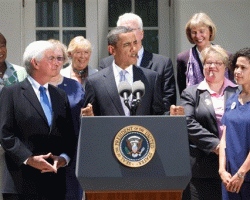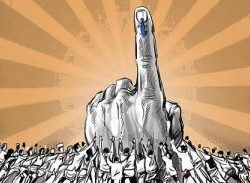
As part of a rising epidemic of mass shootings in the U.S., the horrific slaughter of children in Newtown, CT has rapidly turned into a political opening to advance long-standing gun-control legislation. At the same time, it has reinvigorated the age-old debate over whether guns kill people or people kill people. In reality, research on the social determinants of health would suggest that this is a false choice: the ease of accessing guns in the U.S. generates greater opportunities for gun violence. Likewise, mentally deranged individuals, choose to act out their pathologies through violent acts of aggression (i.e., if guns were less available, perhaps they would still find a way to make good on their nefarious intentions).









